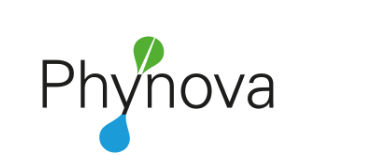预约演示
更新于:2025-05-07
PYN-9
更新于:2025-05-07
概要
基本信息
原研机构 |
在研机构- |
权益机构- |
最高研发阶段无进展临床3期 |
首次获批日期- |
最高研发阶段(中国)无进展 |
特殊审评- |
登录后查看时间轴
结构/序列
分子式C22H20N2O2S |
InChIKeySIZWDJIHABLBSP-RLOOCNJHSA-N |
CAS号1472643-16-5 |
关联
1
项与 PYN-9 相关的临床试验ChiCTR-TRC-13004069
A randomized, double blinded, placebo controlled, parallel grouped, multi-centre clinical study on safety and efficacy of TQS for restoring gastrointestinal function after abdominal surgery
开始日期2012-09-05 |
申办/合作机构- |
100 项与 PYN-9 相关的临床结果
登录后查看更多信息
100 项与 PYN-9 相关的转化医学
登录后查看更多信息
100 项与 PYN-9 相关的专利(医药)
登录后查看更多信息
36
项与 PYN-9 相关的文献(医药)2023-06-15·Pharmaceuticals (Basel, Switzerland)
Thymoquinone Enhances Apoptosis of K562 Chronic Myeloid Leukemia Cells through Hypomethylation of SHP-1 and Inhibition of JAK/STAT Signaling Pathway.
Article
作者: Johan, Muhammad Farid ; Al-Sanabra, Ola M ; Wan Taib, Wan Rohani ; Al-Rawashde, Futoon Abedrabbu ; Alqaraleh, Moath ; Al-Jamal, Hamid Ali Nagi ; Al-Wajeeh, Abdullah Saleh ; Ismail, Imilia ; Jaradat, Ahmad Q
2023-02-01·Molecular Pharmacology
Insights Into the Differential Desensitization of α4β2 Nicotinic Acetylcholine Receptor Isoforms Obtained With Positive Allosteric Modulation of Mutant Receptors
Article
作者: Stokes, Clare ; Papke, Roger L
2021-12-21·ACS Omega3区 · 化学
Identification of SARS-CoV-2 Proteins from Nasopharyngeal Swabs Probed by Multiple Reaction Monitoring Tandem Mass Spectrometry
3区 · 化学
ArticleOA
作者: Illiano, Anna ; Zollo, Massimo ; Quarantelli, Fabrizio ; Siciliano, Roberto ; Pucci, Piero ; Fontanarosa, Carolina ; Ferrucci, Veronica ; Di Domenico, Carmela ; Pinto, Gabriella ; Izzo, Barbara ; Marino, Gennaro ; Amoresano, Angela
100 项与 PYN-9 相关的药物交易
登录后查看更多信息
研发状态
10 条进展最快的记录, 后查看更多信息
登录
| 适应症 | 最高研发状态 | 国家/地区 | 公司 | 日期 |
|---|---|---|---|---|
| 术后肠梗阻 | 临床3期 | 澳大利亚 | 2015-09-06 | |
| 肠阻塞 | 临床3期 | - | - | |
| 肠阻塞 | 临床3期 | - | - |
登录后查看更多信息
临床结果
临床结果
适应症
分期
评价
查看全部结果
| 研究 | 分期 | 人群特征 | 评价人数 | 分组 | 结果 | 评价 | 发布日期 |
|---|
No Data | |||||||
登录后查看更多信息
转化医学
使用我们的转化医学数据加速您的研究。
登录
或

药物交易
使用我们的药物交易数据加速您的研究。
登录
或

核心专利
使用我们的核心专利数据促进您的研究。
登录
或

临床分析
紧跟全球注册中心的最新临床试验。
登录
或

批准
利用最新的监管批准信息加速您的研究。
登录
或

特殊审评
只需点击几下即可了解关键药物信息。
登录
或

生物医药百科问答
全新生物医药AI Agent 覆盖科研全链路,让突破性发现快人一步
立即开始免费试用!
智慧芽新药情报库是智慧芽专为生命科学人士构建的基于AI的创新药情报平台,助您全方位提升您的研发与决策效率。
立即开始数据试用!
智慧芽新药库数据也通过智慧芽数据服务平台,以API或者数据包形式对外开放,助您更加充分利用智慧芽新药情报信息。
生物序列数据库
生物药研发创新
免费使用
化学结构数据库
小分子化药研发创新
免费使用

